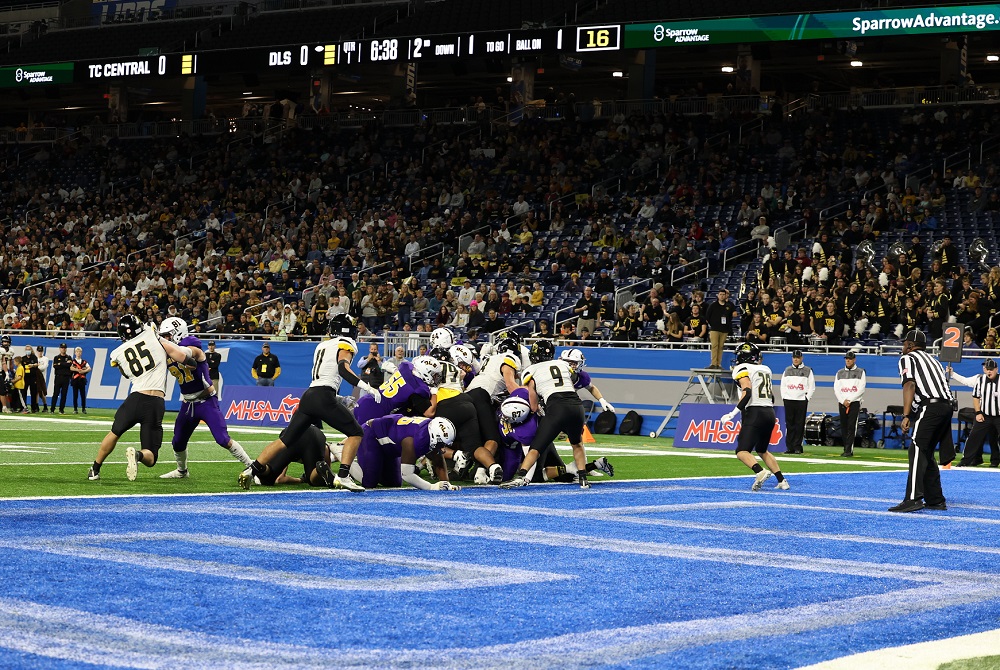
Be the Referee: Preparation for Officials
September 29, 2016
This week, MHSAA assistant director Mark Uyl explains how officials also prepare to be at their best for Friday night's big game.
Be The Referee is a series of short messages designed to help educate people on the rules of different sports, to help them better understand the art of officiating, and to recruit officials.
Below is this week's segment – Preparation for Officials - Listen
Football is a game of preparation. During the week, the teams involved, the cheerleading squads and members of the marching band put in a great deal of work to be ready for Friday night. Officials are no different.
All across the state on Monday nights, referees attend local association meetings where they review film from the previous week’s game, talk about rules, coverages and mechanics, so that our team of officials are just as prepared and ready to go as the teams playing each and every Friday night.
In addition to Friday nights, many officials also work freshman and junior varsity games on Thursday, and will often work games on the
weekend – whether it be small college all the way down to youth games – to give those young people on the field the best officiating possible.
Past editions
Sept 22: You Make the Call: Returning Kickoffs - Listen
Sept. 15: Concussions - Listen
Sept 8: Equipment Covering the Knees - Listen
Sept. 1: Play Clock Experiment - Listen
Aug. 25: Clipping in the Free Blocking Zone - Listen

Be The Referee: Play Clock
By
Sam Davis
MHSAA Director of Officials
August 30, 2022
Be The Referee is a series of short messages designed to help educate people on the rules of different sports, to help them better understand the art of officiating, and to recruit officials.
Below is this week's segment – Play Clock - Listen
There’s a new rule in football this year that provides the offense more time to draw up a play and prepare matchups when the defense commits a foul.
In the past, if the defense committed a foul, the play clock would be set to 25 seconds, potentially changing the approach by the offense entirely.
Under the change, when the defense or receiving team commits a foul, the play clock will start at 40 seconds, giving the offense an extra 15 seconds to prepare their scheme for the next play.
For all other administrative stoppages, including fouls against the offense or kicking team, the play clock will be set to 25 seconds when play resumes.
Previous Editions:
Aug. 23: Intentional Grounding Change - Listen

